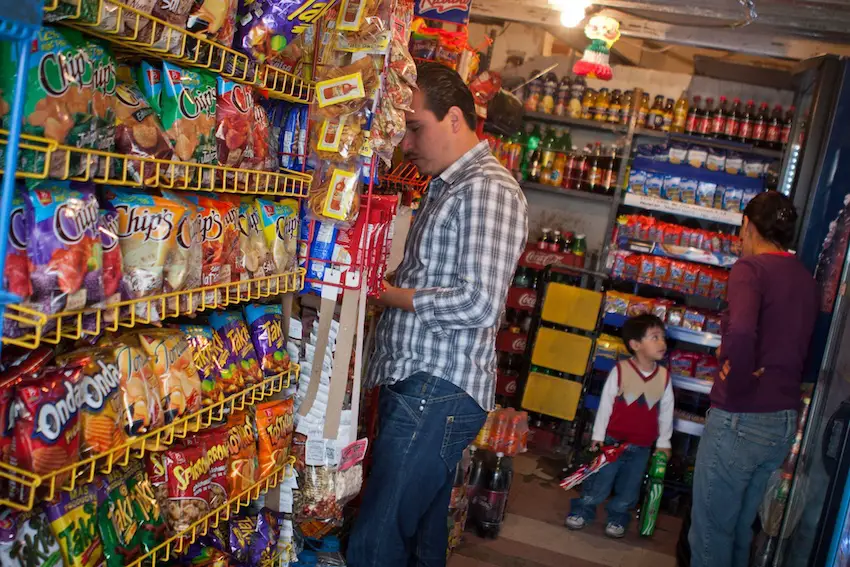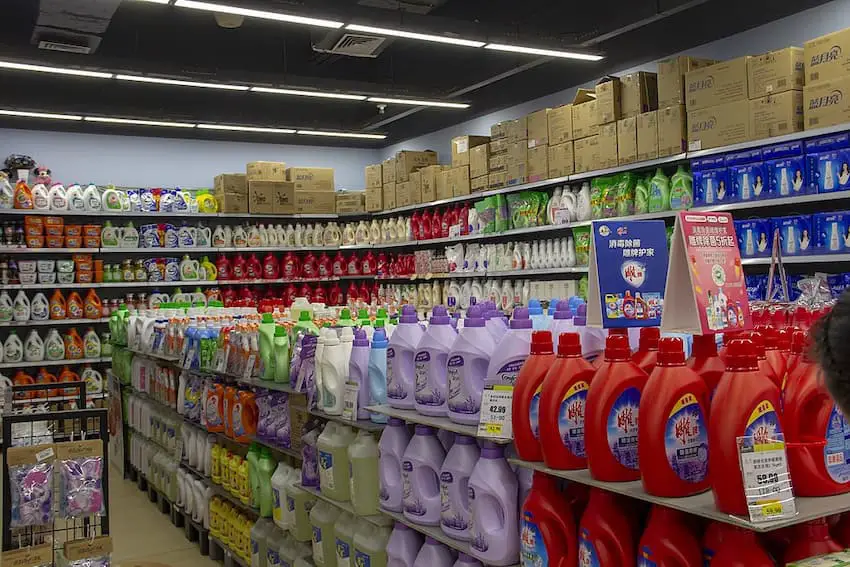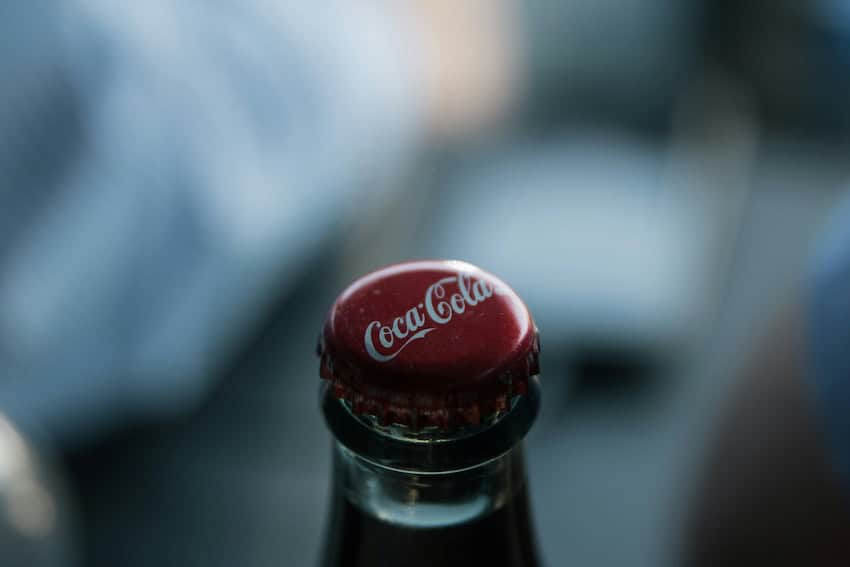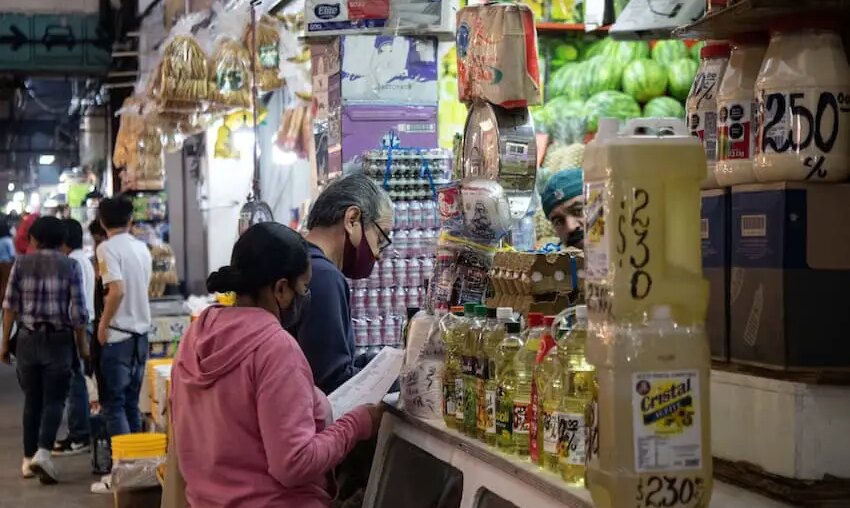The Mexican phenomenon of shopping by only refering to brand names isn’t entirely a new one. The first time I ever heard the word “gelatin” in the United States, I was already a teenager.
“I’m sorry, what?”


After a bit of explaining, I finally got it. “Oh, you mean Jell-o!” I said. It may not have been my most sophisticated moment, but it did teach me, for the first time, what “generic” meant.
For many things, you simply have to know the brand name. So you don’t need “vegetable shortening,” you need Crisco. You’re not looking for “hazelnut spread,” you’re looking for Nutella. “Tissues”? Oh, you mean Kleenex!
In Mexico, it’s pretty much the same — only sometimes it’s more fun because you get to sit and think about the pronunciation for a bit.
Nowhere is this more evident than at your local “tienda.” Each store owner organizes its wares according to the space it has. As a result, you won’t always be able to wander around until you see what you want. Often, you’ll have to ask for something by name, and it’s very possible it’s kept behind the counter.


It’s also very possible that you could get a confused expression for a few beats before receiving an answer. It’s asking about gelatin all over again.
Words to know at the tiendita (and how to use them)
The following is a list of some common items that are typically called things besides how they’d be “genetically” described. Feel free to add more in the comments!
Fabuloso (and Pinol)
Need to do some cleaning? Pair these with “cloro” (bleach) — you know, at your own risk — and you’ll be disinfecting with the best of them!
Fabuloso is one of the most popular brands of multi-purpose cleaner, used for floors, countertops, and even the concrete in front of your house. Pinol is the same, though not quite as popular.
I’m a Pinol girl myself because I just can’t get enough of that pine smell! I can be swayed by a nice apple cinnamon Fabuloso in the fall, though.


Leche Clavel
“Clavel” is the name for “carnation”, so I bet you can guess what this is: Carnation milk, or evaporated milk!
Not only is that my favorite flower, but it’s also my preferred addition to some delicious Veracruz coffee. I actually discovered that by accident one day when I went to the store for a liter of milk. Weirdly, they didn’t have any, so I picked up a can of leche clavel instead, figuring it was better than nothing. Once I poured it into my coffee, I discovered it was actually better than everything, and the key to a deliciously creamy café con leche.
Queso Philadelphia
The few times I’ve tried asking for “cream cheese”, I’ve been met with blank stares. “Oh, you mean queso Philadelphia?”
Well, I suppose I do! I’m not totally sure what most people use it for here; I rarely see it being spread on anything. I myself need it to make my mom’s “cheese pie,” paired with lime and “Lechera” (sweetened condensed milk). Come to think of it, you’ll want to ask for “Lechera” as well. Blend those three ingredients with a little vanilla and pour it into a cookie pie crust, and you’ve got yourself the official dessert of my childhood!
Croquetas


This isn’t actually a brand name, but you’ll still need to say this instead of “dog food” or “cat food”. At the tiendita you can typically find them in giant open bags, and they’ll sell it to you by the kilo. Some might be a bit squeamish about the sanitary implications of open bags of food, so that will depend on your own level of tolerance. I’ve never had any bad experiences, though.
Curitas
This is basically the Spanish-language brand name for Band-Aids. “Vendas adhesivas” might take some explaining. It’s a cute and clever name, though, derived from the verb “curar”, to heal. Adorable!
The nice thing too about Curitas, and even things like Dramamine or Aspirin, is that you can usually buy just one or two at a time; no need to get a whole box!
Papel estrella
This is one that really tripped me up, and you can’t usually get it at a regular tiendita. You’ve got to go to a store that specializes in baking, or perhaps a party supply store. “Papel estrella” is parchment paper, and it’s called that because the parchment paper sold here has little red stars printed on it. You can get a small roll, or you can buy it by the sheet!
Not too many people seem to do a ton of baking here, so it’s more of a “specialty” item. It also shouldn’t be confused with more widely-available wax paper, which can start a fire if you try to put it in your oven. Be careful with that one!
I actually found a pretty big roll of parchment paper at Costco. I do a lot of baking, and it really is kind of a miracle product: no sticking to the pans at all!
Bonus: Coca


Now, I know you know what Coca-Cola is. It’s ubiquitous here, everyone’s favorite “refresco”! It’s so popular that you can even get it in retornables.
Coca is also used, in a round-about way, as a suggestion for a tip. For example, if someone wants to provide a service to you that doesn’t have a set price, they might simply ask for a donation “para la Coca“. Incidentally, this can be a clever way for people to ask for bribes as well. Coke is not expensive, of course, so the suggestion is to be understood as a request for, basically, a token.
So now the question is… what have I missed? I mostly focused on food-related items, but there are examples all over the place. Let’s hear yours!
Sarah DeVries is a writer and translator based in Xalapa, Veracruz. She can be reached through her website, https://sarahedevries.substack.com/

